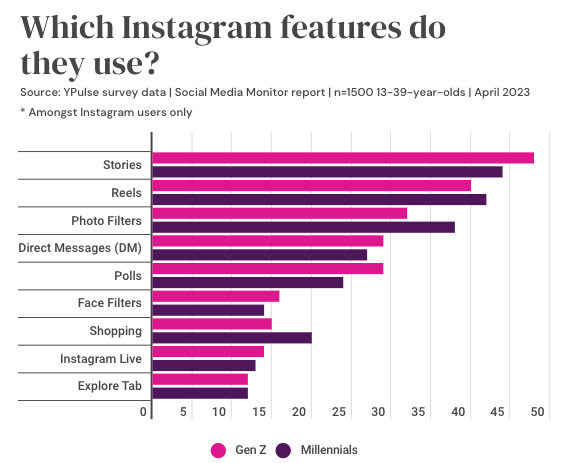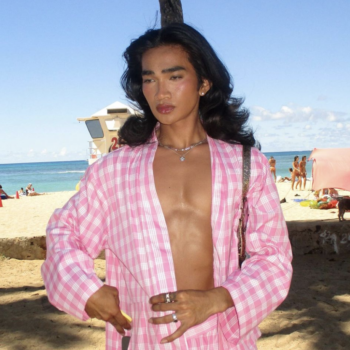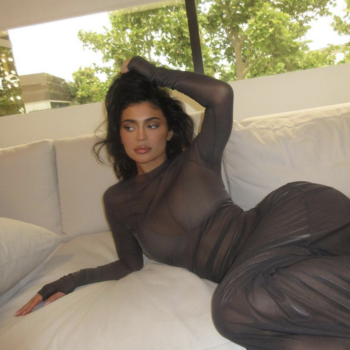Born into a world of constant connectivity and information overload, Gen Z has emerged with a different set of preferences and behaviours that need a special approach.
In this broad guide, we’ll delve into the specifics of leveraging influencer marketing to forge authentic connections with this generation. Embark on this journey with us!
What We Know about Gen Z
- We define Gen Z as individuals born between the mid-1990s and early 2010s.
- They are born to be online. Apart from spending at least four hours daily on social media, they work, shop, date, and make friends online.
- They use social media in a unique way, looking for different kinds of content on each platform.
- According to McKinsey, they are:
- Pragmatic dreamers, balancing personal career aspirations with economic concerns.
- Exhibit lower levels of emotional and social well-being compared to older generations.
- Interested in belonging to inclusive, supportive communities.
- More individualistic, with a keen focus on personal expression.
- Highly politically and socially active, using social media to advocate for their beliefs.
What Social Media Platforms Gen Z Uses the Most
Despite many companies conducting research on the most used social media among this generation, there isn’t one particular platform that can be named as absolutely dominant. They spread their attention across different platforms and use them for different purposes.
However, we can list notable favourites and analyse Gen Zers’ behaviour within them. Each platform has its own special thing.
TikTok
Over 75% of Gen Z actively use TikTok, with nearly 60% using it daily. While TikTok doesn’t always surpass YouTube in its daily usage among this generation, it consistently remains at the top.
They don’t just use TikTok for entertainment, but also for communication. It facilitates video-based conversations and helps build communities of like-minded people. Brands can grasp the preferences of Gen Z and actively participate in the community to be rewarded with trust and lasting connections. TikTok, with its ability to inspire genuine interactions, is an essential tool for brands seeking to effectively engage Zoomers.
YouTube
Even though TikTok has become super popular lately, YouTube is still a big deal for Gen Z.
TikTok is all about fun stuff like memes and viral videos. On the other hand, Gen Z looks up to influencers on YouTube the most. Brands should take note because both kinds of content matter. Viral videos catch their eye, but influencers sway their buying choices.
Even though short videos are a big hit, more than half of Gen Z still enjoy longer videos. They love YouTube for forming connections and relaxing with videos. They’re also big creators themselves, with many influencers from this generation.
Since Zoomers enjoy user-generated content (UGC), brands can tap into this by teaming up with content creators and influencers. It can be a powerful way to convey a brand’s message in a fun and engaging way.
Instagram remains a top choice for Gen Z, with a whopping 64% using it daily.
Impressively, 76% of Gen Z individuals use Instagram to post and share content, surpassing the 45% who do the same on TikTok. Additionally, young users prefer using Instagram to stay in touch with friends and family. This platform provides ample opportunities for brands to connect with niche-specific influencers that have the most impact on Zoomers.
According to YPulse, they use Stories more than the feed. It’s something to consider while creating your campaign content plan.

Snapchat
When it comes to seeking feedback on purchase decisions, Gen Z leans towards Snapchat above all other apps. It offers direct and enjoyable communication with friends.
Additionally, a whopping 92% of Gen Z prefer using AR for shopping, urging brands to embrace new tech to catch their attention. Since visual communication is key for this audience, Snapchat’s fun filters and augmented reality features are big hits, especially for trying out different looks.
Gen Z appreciates the authentic vibe on Snapchat, so direct ads can be off-putting. Instead, subtle approaches like product placement, creative filters or AR lenses work better than flashy stuff or big influencer collabs like on Instagram. Brands should keep it real and relatable.
What Influencers Influence Gen Z
Analysing the preferences of this audience, we can list 5 influencer characteristics that resonate with Gen Z most.
- Authenticity and relatability. Influencers who openly share their personal struggles and maintain a genuine, down-to-earth presence.
- Entrepreneurship. Those who involved in business ventures or actively promoting brands and products.
- Advocacy. Creators addressing important issues such as mental health, LGBTQ+ rights, and environmental concerns in a relatable and light-hearted manner.
- Focus on family. Influencers who involve their family members in their content.
- Diverse collaborations. Those who partner with a range of brands and businesses across various industries, showcasing their broad influence and impact.
Considering that this generation is a digital native and extremely active on social media, there is an enormous number of Gen Z influencers nowadays. We’ll highlight some of the biggest ones, paying attention to what exactly Zoomers appreciate about these creators, so you can use this knowledge to find lookalikes for your campaigns.

Molly-Mae Hague
- Instagram 8M followers
- TikTok 3.4M followers
- YouTube 1.83M followers
- Notable for her fashion empire and reality TV stint.
- Known for resilience against criticism.
- Collaborations with Beauty Works for haircare products.
- Gen Zers across the world trying to copy her look and hairstyle.

Emma Chamberlain
- Instagram 16M followers
- TikTok deleted after 10M followers
- YouTube 12M followers
- Embodying Gen Z culture with open discussions on mental health.
- Successful ventures like Chamberlain Coffee and collaborations with PacSun and CAVA.
- Gen Z loves her relatable and genuine personality.

Bretman Rock
- Instagram 19M followers
- TikTok 16M followers
- YouTube 9M followers
- LGBTQ+ advocate known for makeup and fashion content.
- Collaborations with Crocs, showcasing exclusive Jibbitz.
- Gen Z appreciates his humour, style, and passion for important topics.

Kylie Jenner
- Instagram 399M followers
- TikTok 55M followers
- YouTube 12.2M followers
- The queen of social media with a vast empire of brands.
- Known for her carefully curated lifestyle.
- Gen Z grew up with her and witnessed her path to becoming this entrepreneurial and iconic figure.
These influencers represent Zoomer’s interests and preferences, but obviously, they are too prominent for small or mid-sized businesses that are not prepared for these high fees. To find smaller and more niche influencers, brands can use Companion. It will identify lookalike influencers with similar audiences but different profile characteristics.
Also, read our recent article on how to easily find micro-influencers for your campaign.
What Marketing Strategies Work For Gen Z
Gen Z trusts people who are thoughtful and well-informed.
They want reliable info. Brands that utilise customer advocates, online reviews, and educational social campaigns can quickly gain their affection.
Gen Z values authenticity and can quickly detect insincerity.
Brands should be genuine in their messaging and transparent about their products or services.
Gen Z is socially conscious.
They support brands that take a stand on important issues like environmental sustainability, diversity, and inclusion.
Gen Z prefers instant communications.
Brands can leverage chatbots and messaging apps for real-time interaction.
Gen Z values inclusivity.
Representing diverse perspectives and demographics in advertising resonates well with Zoomers.
Content for Gen Z
- Visual and short-form content.
Engaging visual content is crucial. Marketers also believe that Gen Z’s preference for short, vertical videos is the main reason behind the popularity of platforms like TikTok, IG Reels, and YouTube Shorts.
- User-generated content (UGC).
UGC showcases real experiences and opinions, so it’s worth encouraging users to create content related to the brand to build trust and authenticity.
- Interactive experiences.
Gen Z craves interactive and immersive experiences. Utilise features like polls, quizzes, and augmented reality to engage them.
Conclusion
Gen Z will wield significant buying power in the coming years. If your brand targets young adults, teaming up with Gen Z influencers is a smart move. They are adept at creating quality content on their smartphones.
Gen Z consumers trust their favourite influencers. Authentic endorsements from these influencers can rapidly boost brand growth.


